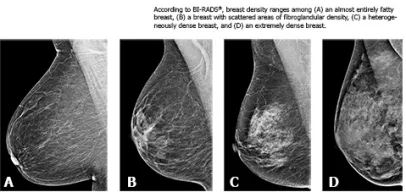The use of diabetes treatment, either by diet or pills such as metformin, decreases breast density (MD), one of the greatest risk factors for breast cancer, while treatment with treatment withInsulin seems to increase it, according to a new analysis that occurs this Wednesday at the 10th European Cancer Conference (ECCO).
Although previous studies have related diabetes to the MD, this work has focused on data on diabetes treatments and insulin use.Dr. Zorana Jovanovic Andersen, Associate Professor of Epidemiology at the University of Southern Denmark, in Esbjerg, Denmark, reports in Ecco the results of a study of 5,644 women (4,500 of which were postmenopausal) that were recruited from the study 'DanishDiet, Cancer and Health '(DCH) and that underwent mammography between 1993 and 2001.
The group had an average age (average) of 56 years;137 (2.4 percent) suffered diabetes and 3,180 (56.3 percent) had categorized breasts as dense or mixed breasts."Women with diabetes recorded less likely to have dense or mixed breasts, as opposed to the fatty, both before and after adjustment by other factors such as overweight," says Andersen.
Similar inverse associations were found in the 44 women who controlled diabetes through the diet alone, compared to 62 who took oral medication for the disease.However, diabetic women who used insulin injections possessed more likely to have dense or mixed breasts.These associations were not modified by the menopausal state or by the body mass index (BMI).
“Diabetes is associated with a higher risk of breast cancer, but the exact mechanisms responsible for this situation are not yet clear.One of the characteristics of cancer cells is their ability to grow rapidly and without control and resist programmed death that occurs in non -carcinogenic cells, ”says Andersen.
“Therefore, growth factors are fundamental for the development and progression of cancer.We know that insulin is an important growth factor for all body tissues but, even, even if we don't know how it affects the development of cancer cells, it is very plausible that raises the density of the breast, ”he adds.
“Our study focused exclusively on the effect of insulin on breast density.Now we would like to extend our research by monitoring these women for breast cancer and observing the effect of different diabetes treatments on the risk of breast cancer.If we find a relationship, we would need to examine whether a high MD is responsible, or if other factors are involved, ”he adds.
The breast density is one of the greatest risk factors for breast cancer, women with high density breasts (density more than 75 percent) have between four to six times more risk than women with a MD of less25 percent.
However, researchers emphasize that the finding that insulin treatment is associated with an increase in MD does not imply that the risk of breast cancer increases."Breast density is only one of the many risk factors for developing breast cancer," says Andersen.


